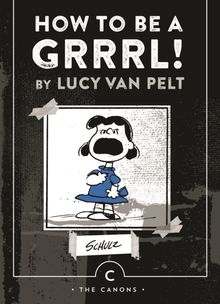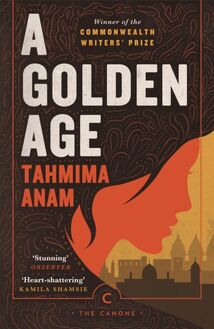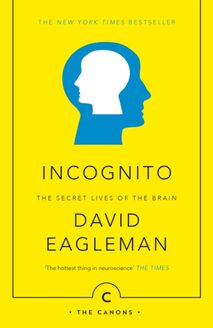Pereira Maintains , livre ebook
79
pages
English
Ebooks
2010
Vous pourrez modifier la taille du texte de cet ouvrage
Obtenez un accès à la bibliothèque pour le consulter en ligne En savoir plus
Découvre YouScribe en t'inscrivant gratuitement
Découvre YouScribe en t'inscrivant gratuitement
79
pages
English
Ebooks
2010
Vous pourrez modifier la taille du texte de cet ouvrage
Obtenez un accès à la bibliothèque pour le consulter en ligne En savoir plus
Publié par
Date de parution
04 novembre 2010
Nombre de lectures
1
EAN13
9781847679642
Langue
English
Poids de l'ouvrage
1 Mo
Publié par
Date de parution
04 novembre 2010
Nombre de lectures
1
EAN13
9781847679642
Langue
English
Poids de l'ouvrage
1 Mo
Contents
Title Page INTRODUCTION ONE TWO THREE FOUR FIVE SIX SEVEN EIGHT NINE TEN ELEVEN TWELVE THIRTEEN FOURTEEN FIFTEEN SIXTEEN SEVENTEEN EIGHTEEN NINETEEN TWENTY TWENTY-ONE TWENTY-TWO TWENTY-THREE TWENTY-FOUR TWENTY-FIVE By the Same Author Copyright
INTRODUCTION
PEREIRA TRANSFORM
I am sometimes asked to name my favourite books. The list changes, depending on my mood, the year, tricks played by memory. I might mention novels by Nabokov and Calvino and Tolkien on one occasion, by Fitzgerald and Baldwin and E.B. White on another. Camus often features, as do Tolstoy, Borges, Morrison, and Manto. And then I have my wild card, the one I tend to show last and with most pleasure, because it feels like revealing a secret.
Sostiene Pereira , I say, by Antonio Tabucchi.
These words are usually greeted with one of two reactions: bewilderment, which is far more common, or otherwise a delighted and conspiratorial grin. It seems to me that Pereira is not yet widely read in English, but holds a heroin-like attraction for those few who have tried it.
My own Pereira habit began a decade ago, in San Francisco’s City Lights bookstore, where an Italian girlfriend suggested I give it a try. San Francisco was the perfect place for my first read: its hills and cable cars and seaside melancholy were reminiscent of Pereira ’s Lisbon setting; its Italian heritage, from the Ghirardelli Chocolate factory at its heart to the wine valleys surrounding it, evoked Pereira ’s Italian author; and its associations with sixties progressivism and forties film noir went perfectly with Pereira ’s politics and pace.
I have always had a thing for slender novels, and I liked the way Pereira looked, the way it felt in my hands. I took it back to my hotel, and straight to bed, at that unadventurous age still my preferred place for a read. It lay elegantly on the sheets beside me. I ran my thumb along its fore edge, narrow and sharp against my skin. I lifted it, opened it and plunged in.
That first reading spanned a single afternoon and evening. I made it from cover to cover, pulled along relentlessly.
I was transfixed by Pereira ’s beauty. In its compression it approached perfection. It swept me off to Lisbon in the thirties, to a ‘beauteous summer day, with the sun beaming away and the sea-breeze off the Atlantic kissing the treetops, and a city glittering, literally glittering’ beneath a window. I developed a crush on the character of Marta, so briefly sketched, who in her ‘straw hat’ and ‘dress with straps crossing at the back’ asks Pereira to dance, a waltz he performs ‘almost in rapture, as if his paunch and all his fat had vanished by magic’.
Despite its economy, Pereira was never perfunctory. It conjured out of its small hat a vast and touching sense of the humane. When the eponymous protagonist, an elderly and overweight journalist, confides each day in the photograph of his dead wife, I experienced their relationship as a living thing. When he tells her the young man Rossi is ‘about the age of our son if we’d had a son’, I understood why Pereira risks paying him for articles he knows cannot be published because of their implicit critique of Portugal’s authoritarian regime.
I have never agreed with the claim that art must be kept separate from politics. In Pereira I found the definitive rejection of that position. I was captivated by the protagonist’s reluctant political awakening, by his final act of rebellion, so quiet and so reckless at the same time. Here was a novel with the courage to be a book about art, a book about politics, and a book about the politics of art – and the skill to achieve emotional resonances that were devastating.
When I returned to New York from San Francisco, I promptly began to recommend Pereira to everyone who asked me for the name of a great book to read.
It was not long before I went back to Pereira myself. I had just published my first novel earlier that year, and I had begun work on my second. I had consciously chosen to do something different this time, to abandon multiple narrators, freestyle riffs and essayistic interludes for an approach more restrained, seemingly simple – and brief. I had first encountered Pereira primarily as a reader. When I looked at it again, months later, I did so as an apprentice.
I began by trying to understand how Pereira managed to achieve so much with so few words. But I was soon asking myself another question. How, with such serious and pressing concerns, did Pereira manage to be so difficult to put down? Put differently, how could this most literary of novels also be such a thrilling page-turner?
I found my answers in Pereira ’s form. Pereira ’s brevity, it seemed to me, gave the novel a lightness that counter-balanced the weight of its subject matter. Moreover, because it was short it was able to move quickly, or at least was able to give the impression of moving quickly. After all, there was only so much ground for the reader to cover between beginning and end.
But even though its compactness was unusual, what seemed to me most striking about the form of Pereira was its use of the testimonial. The novel is not a traditional third-person narrative in which Pereira is himself merely a character. Nor is it a traditional first-person narrative in which Pereira tells us the story of his ‘I’. Instead we have a testimony, with Pereira presumably testifying to an account of his actions transcribed by someone else.
The result is mysterious, menacing, enthralling and mind-bending – all at once. Through the testimonial form, Pereira makes detectives of its readers. We are unsettled and given more to do. An unexpected interpretative space opens up before us, nags at us, seduces us. We feel more like characters than we are used to. And if my experience is anything to go by, we love it.
Pereira ’s politics grow more pressing by the day, as absolutist ideologies and paranoid states increasingly impact our lives. And the lessons Pereira teaches about how fiction works have the power to transform. Certainly they changed this writer. Without Pereira , my own second novel would not have been written as it is. For that, and for the pleasure Pereira has repeatedly given me, I am deeply grateful.
ONE
Pereira maintains he met him one summer’s day. A fine fresh sunny summer’s day and Lisbon was sparkling. It would seem that Pereira was in his office biting his pen, the editor-in-chief was away on holiday while he himself was saddled with getting together the culture page, because the Lisboa was now to have a culture page and he had been given the job. But he, Pereira, was meditating on death. On that beauteous summer day, with the sun beaming away and the sea-breeze off the Atlantic kissing the treetops, and a city glittering, literally glittering beneath his window, and a sky of such a blue as never was seen, Pereira maintains, and of a clarity almost painful to the eyes, he started to think about death. Why so? Pereira cannot presume to say. Maybe because when he was little his father owned an undertaker’s establishment with the gloomy name of Pereira La Dolorosa, maybe because his wife had died of consumption some years before, maybe because he was fat and suffered from heart trouble and high blood pressure and the doctor had told him that if he went on like this he wouldn’t last long. But the fact is that Pereira began dwelling on death, he maintains. And by chance, purely by chance, he started leafing through a magazine. It was a literary review, though with a section devoted to philosophy. Possibly an avant-garde review, Pereira is not definite on this point, but with a fair share of Catholic contributors. And Pereira was a Catholic, or at least at that moment he felt himself a Catholic, a good Roman Catholic, though there was one thing he could not bring himself to believe in, and that was the resurrection of the body. Of the soul yes, of course, for he was certain he had a soul; but all that flesh of his, the fat enveloping his soul, no, that would not rise again and why should it?, Pereira asked himself. All the blubber he carted around with him day in day out, and the sweat, and the struggle of climbing the stairs, why should all that rise again? No, Pereira didn’t fancy it at all, in another life, for all eternity, so he had no wish to believe in the resurrection of the body. And he began to leaf through the magazine, idly, just because he was bored, he maintains, and came across an article headed: ‘From a thesis delivered last month at the University of Lisbon we publish this reflection on death. The author is Francesco Monteiro Rossi, who graduated last month from the University of Lisbon with a First in Philosophy. We here give only an excerpt from his essay, since he may well make further contributions to this publication.’
Pereira maintains that to begin with he read without paying much attention to the article, which was untitled, but then mechanically turned back and copied out a passage. What came over him? Pereira cannot presume to say. Maybe that Catholic-cum-avant-garde magazine got on his nerves, maybe that day he was fed up with Catholicism and the avant-garde in every shape and form, devout Catholic though he was, or maybe again at that particular moment of the particular summer then glittering over Lisbon, with all that bulk of his flesh weighing him down, he detested the idea of the resurrection of the body. But the fact is he set about copying out the article, possibly so as to chuck the magazine away as soon as possible.
He didn’t copy all of it, he maintains, only a few lines, which he can document and which read as follows: ‘The relationship that most profoundly and universally characterizes our sense of being is that of life with death, because the limits imposed on our existence by death are crucial to the understanding and evaluation of life.’ He then pic














